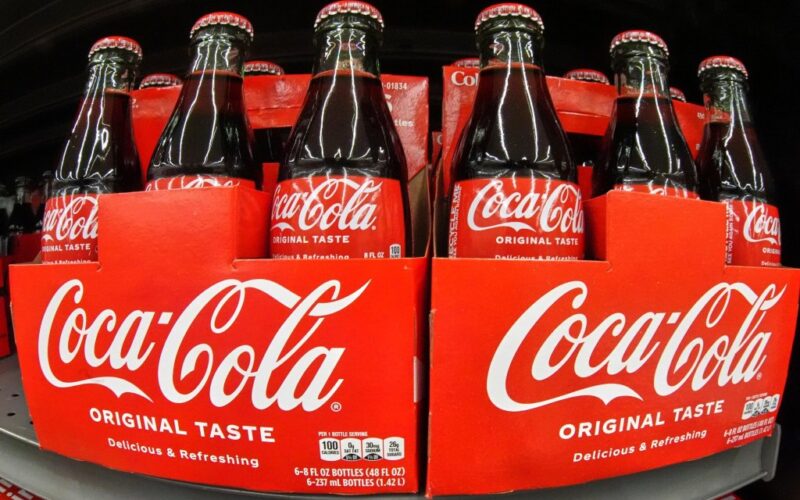Donald Trump’s Coca-Cola deal claims to Make America Healthy Again and stand up to corn lobbyists — it does neither. The sugar swap won’t curb America’s sugar addiction, it will supercharge it. Big farms won’t lose out, small ones will. Meanwhile, we’ll add to the national deficit and America’s growing medical bill.
High-fructose corn syrup (HFCS) and cane sugar are nearly identical. Both are tied to excessive caloric intake, obesity, diabetes, heart disease, and other chronic conditions that plague Americans. The problem isn’t the type of sugar we’re consuming, but how much.
Estimated hits to farm revenue and job loss are overblown; they assume a full swap to cane sugar, which is unlikely. Even if the deal initially hurts corn farmers, they’ll be protected by programs like the $10 billion Emergency Commodity Assistance Program. Trump can play hero, offering bailouts like the $28 billion he gave to farmers hurt by first-term tariffs.
The president isn’t making America healthy again, he’s promoting sugary sodas. He’s choosing corporations over American farmers and adding to our bloated deficit.
Trump also isn’t doing anything new; swapping sugar is old news. Flashback to the early 2000s when the public’s love affair with cola faltered. Obesity rates hit double digits in all states for the first time; evidence pointed to the bubbly drink I’d grown up with. Science, the media, and the public increasingly linked soda to obesity, especially in children. Lawsuits were filed, and vending machines were hauled out of schools.
Soda giants saw the writing on the wall. The health-conscious were coming for their profits.
The studies pegged sugar as the villain, but there was another monster in the closet, high-fructose corn syrup. HFCS is linked to increased inflammation, one of the drivers of obesity and disease. So is sugar. But that didn’t stop brands from glorifying “real cane sugar” as a healthier option. Coca-Cola already had an ace up its sleeve, Mexicoke.
Mexican Coca-Cola, always made with sugar, had enjoyed a small and unofficial place in U.S. markets, mostly confined to Mexican communities. In 2009, the cane sugar cola went mainstream, hitting the shelves of Costco, Sam’s Club and Kroger, offering a “healthy” alternative for people avoiding HFCS. That same year, Pepsi Throwback hit the market, offering a cane sugar-sweetened alternative as a healthier option. Great for branding, bad for us.
In both cases, the soda giants expanded their consumer base, recruiting hipsters, youngsters, and moms who wanted to give their kids a healthier choice — they fell for the health halo effect. When we perceive something as healthy (usually based on packaging claims) we’re likely to eat more and feel hungrier after. This effect, known as the health halo has been documented by multiple studies. If you’ve ever eaten an entire box of Skinny Cow ice cream sandwiches, you know what I mean.
When brands advertise “natural” or “cane” sugar, consumers perceive them to be healthier and lower in calories. Parents are more likely to buy products labeled as “natural” regardless of the true health profile and products made with cane sugar increase people’s health perception. It’s a big win for a company that’s been battling science for decades.
In 2014, the intro to a Coca-Cola Company memo read, “There is a growing war between the public health community and private industry over how to reduce obesity. Sides are being chosen and battle lines are being drawn.” It’s clear which side Trump is on.
For many of us, Coca-Cola is part of our American identity; I still remember blind taste tests with my brother at the kitchen table. We’ve loyally followed the brand through packaging shifts, recipe overhauls, and its expansion into water, tea, and dairy products, which comprise more than half of Coke’s revenue. Meanwhile, Coca-Cola Zero Sugar sales are growing faster than the brand’s portfolio.
Our appetite for cola hasn’t changed, our desperation to fight obesity, diabetes, and heart disease has. The misperception, fueled by the U.S. department of health, that cane sugar is a significantly healthier option will derail the precious progress we’ve made. Regulatory bodies should be clear about sugar’s health risks.
When Chile enacted strict labeling laws and restrictions on advertising, sugary drink consumption fell by nearly a quarter. Other countries have found success with sugar-sweetened beverage taxes. Here in corporate America, while Trump makes bedfellow with big soda, reclaiming our health is up to consumers. Brands make what we buy, choose wisely.
Lutz is a freelance writer focusing on international affairs, travel, climate change, development, and health.








